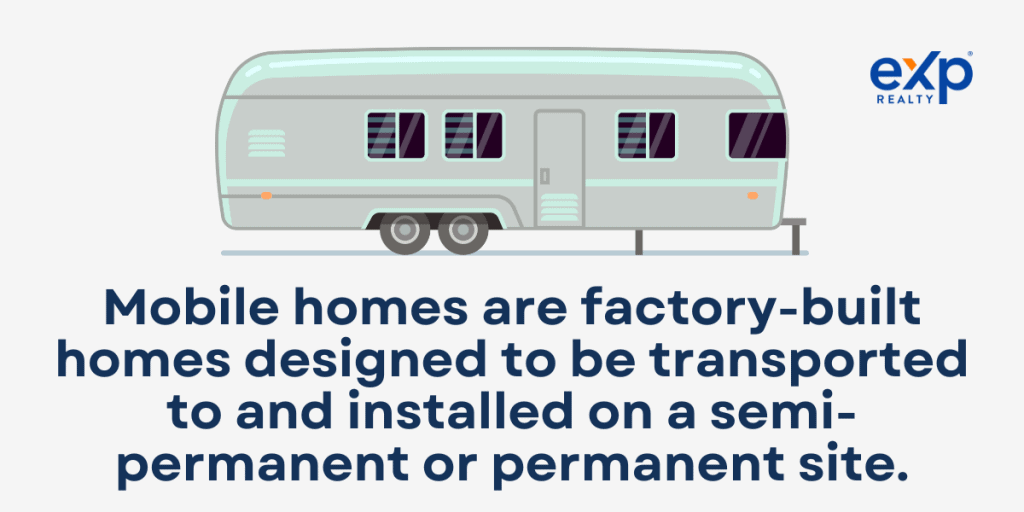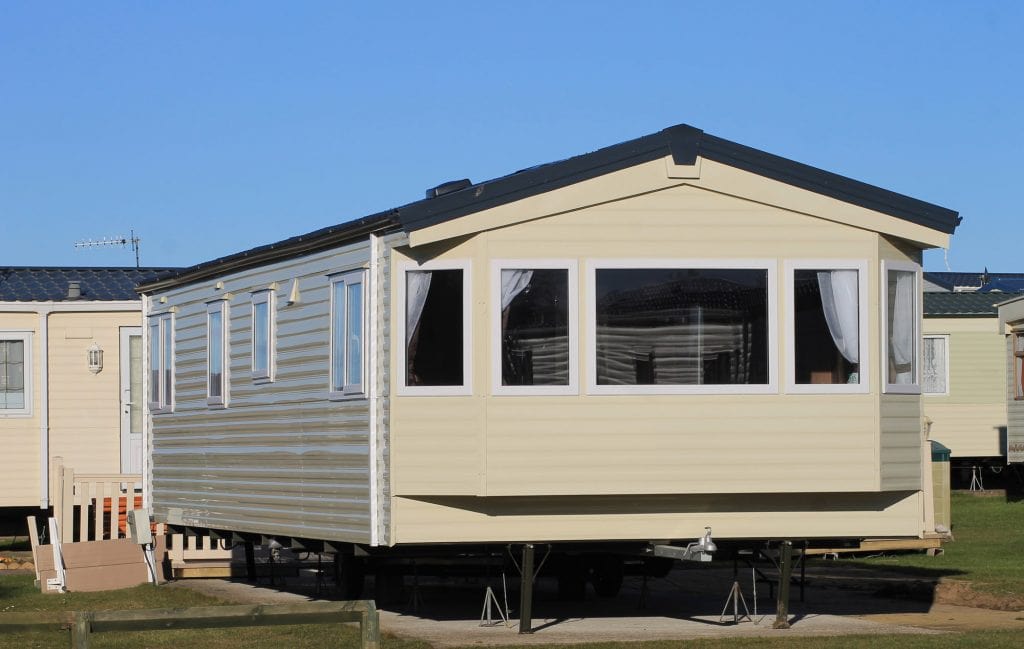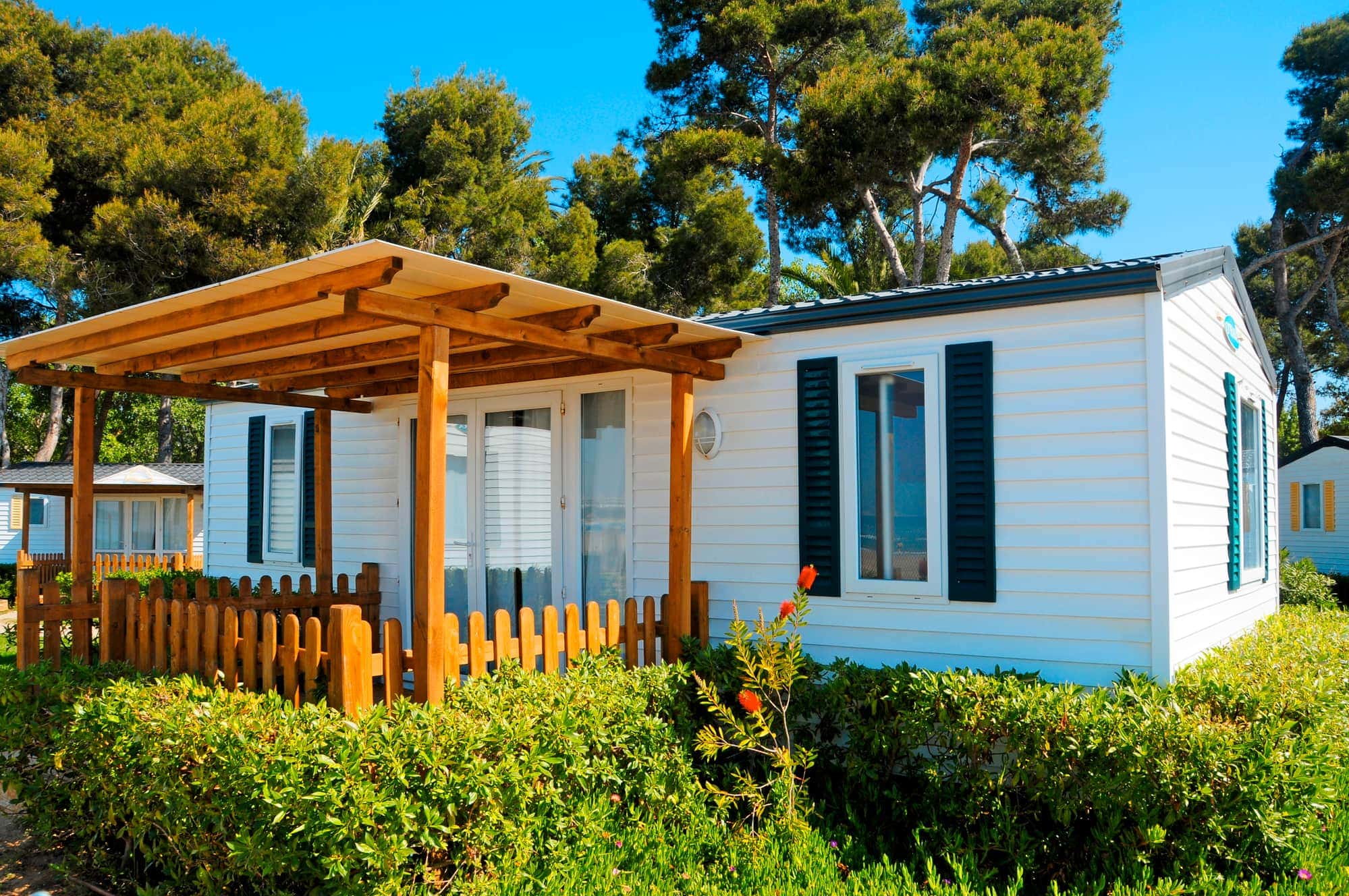The journey to homeownership can be a challenging process. However, mobile homes offer an affordable and flexible alternative that can make this journey more accessible. Whether you want to downsize, achieve housing independence, or find an efficient and compact dwelling, mobile homes can meet diverse housing goals.
But, where do you even begin when it comes to finding and purchasing a mobile home? In this guide, we’ll cover everything you need to know to successfully find and purchase your dream mobile home.
From researching the available options to knowing what to look for during inspections, we’ve got you covered. So, grab a cup of coffee and read on to become a mobile home buying expert.
What Is a Mobile Home?

Mobile homes, or manufactured homes, are factory-built homes designed to be transported to and installed on a semi-permanent or permanent site. They provide affordable housing options, making homeownership accessible for individuals and families with diverse financial situations.
Thanks to modern design and advanced engineering, mobile homes now boast features like vaulted ceilings, modern kitchens, and customizable designs akin to traditional site-built homes.
Mobile homes come in various sizes, from compact single-unit homes to larger double-wide or even “extra-wide” homes that offer square footage. Finding the right mobile home that fits your budget, lifestyle, and long-term housing needs is essential.
Researching Mobile Home Options
Conducting thorough research is crucial to begin your journey toward mobile home ownership. Here are some steps you can take:
- Step 1: Identify your budget and financing options. Understand the costs of mobile home ownership, including the home price, land lot fee, property taxes, and potential chattel loan or mobile home loans.
- Step 2: Determine your desired location and amenities. Do you prefer a standalone plot or a community setting like mobile home parks? Consider factors like proximity to essential services, local property tax rates, and the amenities offered by mobile home communities.
- Step 3: Explore different mobile home models and sizes. The options are vast, from basic 14-foot-wide homes to 16-foot-wide homes and more expansive models for those looking for wider homes.
- Step 4: Consider both new and used mobile homes. Used mobile homes can be a more affordable alternative, but ensure to check for any signs of wear and tear, compliance with federal building codes, and the presence of certification tags.
Searching for Mobile Homes
Once you’ve conducted thorough research, the next step is searching for your future home. Here’s how:
- Utilize online listing platforms and classified ads: Online platforms provide an overview of what’s available in your desired area and price range.
- Contact local real estate agents specializing in mobile homes: An experienced agent can provide insights about the local market, assist in negotiations, and guide you through purchasing. Find a local eXp real estate agent who can help in your search for mobile homes.
- Attend open house events and mobile home expos: These events allow exploring various models and speaking directly with dealers and manufacturers.
- Network with mobile homeowners and manufactured home community members. They can provide firsthand experience and insights about living in a mobile home and possibly information about available homes for sale.
Evaluating Mobile Home Quality
Selecting a high-quality mobile home is crucial to ensure your investment is worthwhile. Here’s how to evaluate the quality of a mobile home:
Inspect the exterior condition
Check the roof for any signs of leaks or damage. Evaluate the siding for cracks or rot, and ensure the home has a solid foundation.
Assess the interior features
Look for signs of plumbing or electrical issues. Ensure all appliances are in good working order, and check for heating and air-conditioning units.
Check For Issues
Check for any signs of water damage, mold, or structural issues. Look for signs of water stains, leaks, sagging floors, or warped walls.
Hire An Inspector
A home inspector can provide a thorough assessment and help identify any potential issues you might have missed.
Understanding Mobile Home Financing
Navigating the financing options for mobile homes can be complex, but understanding the nuances can help you make an informed decision. Mobile home financing can start with these actions:
- Explore financing options for mobile homes. Chattel loans for personal property or mortgages for homes on a permanent foundation.
- Research lenders specializing in mobile home loans. Such lenders as Fannie Mae or Freddie Mac may be more familiar with the specific needs and challenges of mobile home financing.
- Compare interest rates, terms, and repayment options. Be sure to understand the total cost of the loan, including the interest over the life of the loan.
- Calculate the total cost of ownership, including insurance and taxes. Consider expenses like property taxes, insurance, land lot fees, and any park or mobile home community fees.
- Understand the implications of different financing choices. Personal loans may have higher interest rates than mortgages but offer more repayment flexibility.
Negotiating the Purchase
Once you’ve found a mobile home that suits your needs and budget, the next step is negotiating the purchase. To do so, follow these steps:
- Research recent mobile home sales in the area for price comparisons. This can give you a benchmark for a reasonable home price.
- Determine a fair offer based on the condition and market value. Consider any necessary repairs or upgrades.
- Negotiate with the seller. This might involve requesting repairs, upgrades, or price reductions.
- Consider including contingencies in the purchase agreement. These could be related to financing approval, a satisfactory home inspection, or selling your current home.
- Consult with a real estate attorney if necessary. They can help ensure the contract is fair and legally sound.
Completing the Purchase
Completing the purchase of a mobile home involves several key steps.
- Review and sign the purchase agreement. Ensure you understand all the terms and conditions before signing.
- Arrange for a mobile home appraisal if the lender requires it. This will help confirm the home’s market value.
- Obtain financing approval and secure the necessary funds. This could involve finalizing a mortgage or chattel loan or arranging other financing.
- Conduct a final walkthrough to ensure all agreed-upon repairs have been completed and the home is in the agreed-upon condition.
- Close the transaction and transfer ownership legally. This typically involves signing all necessary documents in the presence of a notary public. Once the transaction is complete, you’ll be the proud owner of a mobile home!
Moving and Setting Up Your Mobile Home
Moving your mobile home and setting it up in its new location involves careful planning and coordination.

Take Your New Mobile Home To Its Location
Arrange for mobile home transportation to your desired location. This typically involves hiring a professional mobile home moving service with the necessary equipment and experience.
Prepare The Mobile Home Site
Ensure the site is ready to receive the home. This includes ensuring utility connections are in place, getting the necessary permits, and preparing a solid and level foundation for the home.
Hire A Professional To Set Things Up
Hire professionals to set up the mobile home. Proper setup is crucial for the longevity and safety of your mobile home. It includes leveling and anchoring the home to protect against winds and other natural disasters.
Maintaining and Upgrading Your Mobile Home
Owning a mobile home comes with responsibilities for upkeep and maintenance. Establish a regular maintenance routine. This can help prevent major issues and ensure your mobile home retains value.
- Address any necessary repairs promptly. Quick action can prevent minor problems from escalating into expensive repairs.
- Upgrade and personalize your mobile home to suit your preferences. Whether adding vaulted ceilings, updating the bathroom, or installing a new eat-in kitchen, there are countless ways to make a mobile home your own.
- Stay informed about mobile home regulations and compliance standards. This includes understanding local building codes, insurance, and certification requirements.
FAQs: Mobile Homes
You might still have some questions about mobile homes. Here are some frequently asked questions and their answers.
What state is best to buy a mobile home?
There are seven states considered to be popular for mobile home buyers due to factors such as the number of mobile home parks and land lease communities, availability of modern double-wide models, favorable real estate prices for this property type, and nearby amenities. The top states to purchase a mobile home (and modular homes) are:
How much do most mobile homes cost?
The cost of mobile homes varies considerably based on size, features, location, and whether it’s new or used. On average, they can range from $20,000 to $100,000.
What is the difference between a mobile home and a trailer?
While both are types of manufactured homes, trailers are typically smaller, less permanent. They are designed for travel or temporary housing, while mobile homes are larger and designed for long-term living.
How much are most double-wides?
Double-wide mobile homes offer more space and range from $50,000 to $200,000 depending on size, location, and amenities.
Is a mobile home ever a good investment?
Mobile homes can be a good investment for those seeking affordable housing. However, unlike traditional site-built homes, their value could depreciate over time depending on location and other factors, so consider your financial situation and housing goals carefully.
Is it comfortable to live in a mobile home?
Modern mobile homes often have comfortable amenities like master bedrooms, modern kitchens, and entertainment centers, providing comfort similar to a traditional home.
Why are mortgage rates higher for mobile homes?
Mortgages for mobile homes are often considered riskier by lenders due to factors like depreciation and mobility, which can lead to higher interest rates.
What are the sizes of mobile homes?
Mobile homes come in various sizes, from single and double-wide units to even larger “extra-wide” homes.
What is the length of most mobile homes?
The length of mobile homes varies. Single-wide models are usually about 15 feet wide and 72 feet long, while double-wide models are twice as wide.
How to make a mobile home look like a house?
Upgrades such as adding a permanent foundation, landscaping, porches, or faux brick underpinning can give a mobile home the appearance of a traditional site-built home.
Key Takeaways
Finding and purchasing a mobile home involves several steps, including thorough research, carefully evaluating options, understanding financing, and mastering the negotiation process.
It’s essential to evaluate the quality of your prospective mobile home, understand your financing options, and have a clear negotiation strategy. After purchase, ensure your mobile home is properly set up and maintained for long-term satisfaction.
If you’re ready to search for the perfect mobile home, explore the listings on eXp Realty. To navigate this process easily, contacting an experienced local agent can provide invaluable assistance throughout this process. Contact an eXp Realty agent today to begin your mobile home ownership journey.





